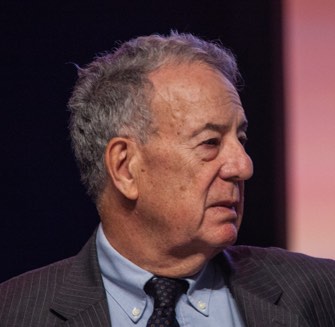Each week, we succinctly summarize the preceding week of Federal Circuit precedential patent opinions. We provide the pertinent facts, issues, and holdings. Our Review allows you to keep abreast of the Federal Circuit’s activities – important for everyone concerned with intellectual property. We welcome any feedback you may provide.
– Joe Robinson, Bob Schaffer, Lindsay Henner, Parker Hancock, and Puja Dave
84-1. Federal Circuit Affirms PTAB Discretion to Institute IPR and Rule on Subset of Challenged Claims
- Synopsys, Inc. v. Mentor Graphics Corp., No. 2014-1516, 2014-1530 2016 U.S. App. LEXIS 2250 (Fed. Cir. Feb. 10, 2016) (Before Dyk, Wallach, and Newman, J.) (Opinion for the court, Dyk, J.). Click Here for a copy of the opinion.
- Synopsys, Inc. v. Lee, No. 2015-1183, 2016 U.S. App. LEXIS 2255 (Fed. Cir. Feb. 10, 2016) (Before Dyk, Wallach, and Newman, J.) (Opinion for the court, Dyk, J.). Click Here for a copy of the opinion.
On February 10, 2016, a divided Federal Circuit panel reaffirmed the Patent Trial and Appeal Board’s (PTAB) authority to institute trial and provide a final written decision on only a subset of the challenged claims in an AIA post-grant proceeding. At issue on appeal was the PTAB’s final decision not to address all claims that were challenged in the underlying inter partes review (IPR) Petition.
Petitioner Synopsys first filed an IPR petition asserting that Mentor Graphics’ patent covering detecting software bugs was invalid. The petition asserted that 29 patented claims were invalid. The PTAB instituted review of 12 claims on anticipation grounds, and declined to consider the remaining claims and asserted grounds for invalidity. Synopsys appealed and Mentor Graphics cross-appealed.
Synopsys argued that the PTAB’s failure to address all claims raised in the petition constituted error. Purporting to interpret 35 U.S.C. §318(a), Synopsis asserted that the Board was required to render a final written decision with respect to all challenged claims, rather than simply those for which the PTAB instituted trial. Section 318(a) instructs the PTAB to prepare a final written decision “with respect to the patentability of any patent claim challenged by the petitioner.” The Director of the Patent and Trademark Office intervened to offer an interpretation of the statute.
The Federal Circuit rejected Synopsys’ interpretation, finding instead that the statutory language makes clear that the claims to be addressed in the final decision are the claims for which trial is instituted. The Court noted the use of the conditional phrase “[i]f an inter partes review is instituted” in section 318(a) as support for its position. Writing for the majority, Judge Dyk confirmed “[t]he statute is quite clear that the PTO can choose whether to institute inter partes review on a claim-by-claim basis.” Not only did the Court find the statutory language clear, but also noted that it would be nonsensical to requiring a final written decision on claims that were not subject to further development on the record through trial. The Court also reiterated that it is within the PTAB’s sole discretion to institute review “on all or some of the challenged claims and on all or some of the grounds of unpatentability asserted ….” 37 C.F.R. §42.108.
Judge Newman wrote in dissent that the PTAB’s interpretation runs afoul of the AIA’s intent to create an efficient alternative forum for resolving patent disputes, since a failure to resolve all claims before the PTAB leads to duplication in district court.
On the same day, the Court also issued an opinion in the companion case (Synopsis v. Lee) where Synopsis also challenged the same regulation in an appeal to the district court. The court dismissed Synposis’s appeal from the district court as moot, reasoning that all the issues raised in Synopsis v. Lee had been decided in Synopsis v. Mentor Graphics Corp. Where a party challenges an agency action in two separate actions, a decision in one resolves the issues in the other, and renders the other one moot.
Judge Newman again dissented, reasoning that the district court properly found that it did not have jurisdiction to decide the issue under the APA. The America Invents Act removed challenges to IPR proceedings from the APA, consolidating judicial review of IPR’s in the Federal Circuit. Because the issue presented in the case below was not on the merits, but whether the district court had jurisdiction at all, the question of jurisdiction had not been made moot by the decision in Synopsis v. Mentor Graphics Corp. Thus, the Federal Circuit should have affirmed the decision of the district court, finding it had no jurisdiction to hear the challenge under the APA.

![[IPWatchdog Logo]](https://ipwatchdog.com/wp-content/themes/IPWatchdog%20-%202023/assets/images/temp/logo-small@2x.png)




![[Advertisement]](https://ipwatchdog.com/wp-content/uploads/2024/04/Patent-Litigation-Masters-2024-sidebar-early-bird-ends-Apr-21-last-chance-700x500-1.jpg)

![[Advertisement]](https://ipwatchdog.com/wp-content/uploads/2021/12/WEBINAR-336-x-280-px.png)
![[Advertisement]](https://ipwatchdog.com/wp-content/uploads/2021/12/2021-Patent-Practice-on-Demand-recorded-Feb-2021-336-x-280.jpg)
![[Advertisement]](https://ipwatchdog.com/wp-content/uploads/2021/12/Ad-4-The-Invent-Patent-System™.png)







Join the Discussion
No comments yet.